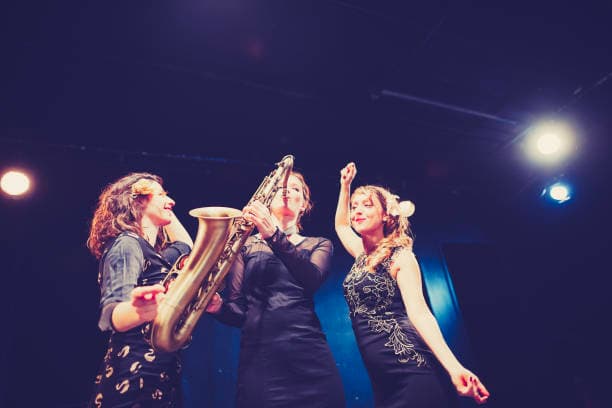French chanson, a genre characterized by poetic lyrics and emotional melodies, has woven a rich tapestry of musical expression throughout its history. From its humble beginnings to the diverse landscape it paints today, the evolution of French chanson is a fascinating journey that reflects the cultural and social shifts of the times. What is it that has attracted people for centuries?
Origins and Folk Influences: A Musical Mosaic Emerges
The roots of French chanson can be traced back to the folk traditions of medieval troubadours and trouveres. These wandering poets and musicians laid the foundation for a unique style of storytelling through song. Themes of love, politics, and daily life were woven into melodies that resonated in the hearts of the people. The troubadour tradition planted the seeds that would eventually bloom into the diverse garden of French chanson. The 19th century witnessed the blossoming of French chanson into a more refined and structured form. Artists like Edith Piaf and Charles Aznavour rose to prominence during this era, embodying the spirit of chanson with their emotive performances. The themes explored in their songs often reflected the societal changes of the time, from the Belle Époque to the tumultuous years of war. This golden age laid the groundwork for chanson to become a powerful medium for social commentary.
Chanson and Political Expression: Mid-20th Century
In the mid-20th century, French chanson moved beyond its traditional role as mere entertainment and assumed a powerful role as a political platform. The transformative voices of artists such as Georges Brassens and Jacques Brel were instrumental in changing the landscape of musical expression, and their lyrics resonated far beyond the melody.
Georges Brassens, a poetic troubadour, used his guitar as a weapon of dissent. His songs were imbued with a deep sense of rebellion, challenging the established norms of society. Through his music, Brassens conducted a subtle dialog about freedom, justice, and the complex fabric of human nature. His compositions were not just strung notes, but powerful reflections on the socio-political currents of his time.
Jacques Brel, another coryphaeus of the chanson movement, carved out a niche for himself with compositions that were both rough and unapologetically political. Brel’s work delved into the complexities of human experience, unraveling the layers of social structures and exposing the underlying political issues. His music became a sounding board for those who were disenfranchised by the dominant order, a resonant anthem for a generation in turmoil.
The lyrics of these chansonniers’ songs were more than poems-they were manifestos, calls for change that united. The social criticism embedded in their music was a mirror that reflected the turbulent spirit of the era. The middle of the 20th century, marked by political upheaval and cultural revolutions, found its echo in the piercing melodies and thought-provoking poems of Brassens and Brel.
Thus, the main contribution of Georges Brassens and Jacques Brel is:
- Challenging social norms
- Political engagement
- Reflection of human complexity
- Emphasizing the demands of the disenfranchised
The influence of French chanson as a political force can hardly be overestimated. It became a means of expressing dissent, a channel through which artists could express their dissatisfaction with the status quo. In fact, the mid-20th century witnessed the transformation of French chanson into a vehicle for profound socio-political commentary, with Georges Brassens and Jacques Brel at its forefront, wielding guitars and pens as instruments of change.
Influence of Jazz and Globalization: Mid to Late 20th Century
Artists such as Serge Gainsbourg and Yves Montand created a more eclectic sound by incorporating elements of jazz, pop, and even rock into their chansons. The globalization of music also played a role, opening French chanson to a wider international audience. This period was marked by a dynamic fusion of traditional chanson with global musical trends.

Contemporary Resurgence: 21st Century
In the 21st century, French chanson has experienced a resurgence with a new generation of artists adding their voices to the narrative. Artists like Zaz and Benjamin Biolay bring a contemporary flair to the genre while still paying homage to its roots. The themes explored in their songs continue to reflect the complexities of modern life, making French chanson a living art form that evolves with the times.
Conclusion
The evolution of French chanson from its origins to the present day is a harmonious continuum that reflects the soul of a nation. From troubadours to troubleshooters, the genre has adapted, embraced, and enriched itself, becoming a cultural mirror that reflects the joys, struggles, and aspirations of the French people. As the melodies of French chanson continue to echo through the ages, they carry with them the essence of a musical journey that transcends time.








